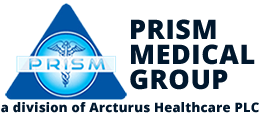SERVICES
Adult Medicine

Adult Medicine
Adult Medicine is the diagnosis and treatment of adults from age 18 through geriatrics. This covers patients who are healthy as well as those with chronic conditions or other complex illnesses. Your Internist or Family Practitioner is trained to take care of the whole body, and will refer you to a specialist where needed.
Complete Physical Exams & Preventative Care
A complete physical exam allows us to review your medical history and current health, and to make the appropriate recommendations for preventive care. Most physical exams will include blood work, urinalysis, EKG and referrals for testing or to specialists.
For all physical exams, we ask that you come in fasting. Fasting means no food for 12 hours prior to your appointment. You are able to drink water, black coffee or black tea, and to take any medications that do not need to be taken with food.
Immunizations
Immunizations are important to protect you from acute or potentially life-threatening illnesses. We store and administer all recommended vaccines for adults, including seasonal flu shots. The CDC’s recommended vaccines can be found here.
Sick Visits
If you are not feeling well, please call the office to schedule an appointment. We leave space in our schedules to accommodate same day appointments. Please understand that we may ask you to see another provider if your primary doctor is unavailable.
Preoperative Evaluation
Many surgeons require an evaluation before an elective surgical procedure to ensure your body is healthy enough for surgery. Please call our office as soon as you can after scheduling the surgery to schedule an appointment. This visit may include a brief exam, EKG and blood work. We will then report our findings and recommendation to your surgeon.
Medicare Wellness Visits
The Welcome to Medicare Preventive Visit must occur within your first twelve months as a Medicare patient in order to be covered by Medicare. At this visit, your provider will:
- Record and evaluate your medical and family history, current health conditions, and prescriptions
- Check your blood pressure, vision, weight and height to get a baseline for your care
- Review your potential risk for depression and your level of safety
- Make sure you’re up to date with preventive screenings and services, such as cancer screenings and shots
- Discuss with you the option of creating advance directives
- Order further tests, depending on your general health and medical history.
Following the visit, your doctor will give you a written plan with the screenings, shots and other preventive services that you need.
Medicare Annual Wellness Visits must occur at least 12 months after you become a Medicare patient, or 12 months after your previous Annual Wellness Visit to be covered by Medicare. This visit type is not the same as a complete physical exam, but rather an opportunity to review your medical history, discuss risk factors and create or update a personalized prevention plan to keep you healthy.
Your list of providers and medications will be reviewed, and your height, weight and blood pressure will be recorded. You may need to schedule a separate appointment for lab work, medication management, immunizations or other services.
Following the visit, your doctor will give you a written plan with the screenings, shots and other preventive services that you need.
Chronic Disease Management
Chronic diseases can affect a person’s ability to perform important activities of daily living, preventing engagement and enjoyment of family and friends. Our goal is to assist and support you in ways to improve your health.
Our clinical team will work with you and your physician and other members of your health team to identify how we can help you experience your optimum health. Some topics that we may address include hypertension, diabetes, asthma, COPD, cardiac diseases, weight management and nutrition.
We would be happy to discuss ways we can help you to promote your wellness.
Other Services
Osteoporosis Screening
Osteoporosis is a condition where the bones become brittle and more fragile. A bone density exam is a screening test for osteoporosis. It is recommended that screening for osteoporosis be done every two years beginning at age 65. If you are due for a bone density exam, your provider can give you an order to have one done.
Patients who are diagnosed with osteoporosis and are intolerant to oral alternatives may benefit from injections of the medication Prolia. This medication is injected every 6 months in order to combat osteoporosis. If your insurance approves the expense of Prolia, you can have this injection done right in our office.
Chlamydia Screening
Chlamydia is a common sexually transmitted infection that can infect men and women. It is recommended that screening for chlamydia be done annually for women from age 18 to age 25. This is a simple urine test that can be done in our office.
Hepatitis C Screening
Hepatitis C is a disease of the liver. It is recommended that all people born between 1945 and 1965 receive a one-time screening for Hepatitis C. This is a simple blood test that can be done in our office.
Vitamin B12 Injections
Some patients with a Vitamin B12 deficiency may benefit from injections of Vitamin B12. If your provider recommends a B12 injection for you, this can be done in our office.
Skin Biopsies
Your provider may be able to remove small moles or skin tags. These samples will be sent to the lab for analysis to ensure there are no cancerous cells involved. If your provider is unable to perform this procedure, you will be referred to a dermatologist or a surgeon.
Minor Suturing
Many cuts or lacerations may be able to be repaired right in our office, depending on how deep or large the cut or laceration is. If not, your provider will direct you to the most appropriate medical facility.
Wart Removal
Warts are benign (not cancerous) skin growths that appear when a virus infects the top layer of the skin. Removal of warts can be done within our office by freezing the wart (cryotherapy) and removing it from your skin. This often takes a few treatments before the wart is completely gone.





